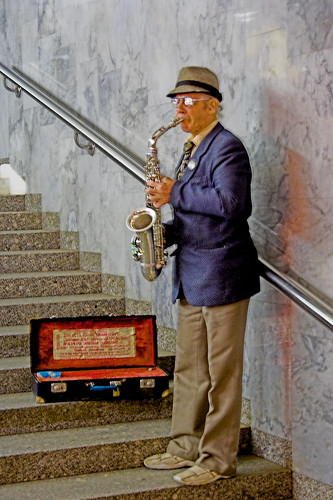 Life has been ridiculously busy lately and I've obviously let this blog go by the wayside for a bit. I hope to properly pick it up again soon, but in the meanwhile this is a post I wrote for the StartSomeGood blog recently and I figured I should also share here.
Life has been ridiculously busy lately and I've obviously let this blog go by the wayside for a bit. I hope to properly pick it up again soon, but in the meanwhile this is a post I wrote for the StartSomeGood blog recently and I figured I should also share here.
During February, thanks to the generous support of Renata Cooper and Forming Circles, I had the opportunity to attend two great conferences in Thailand and the US respectively where I was thrilled to meet changemakers and social entrepreneurs from at least 16 countries and learn more about their projects, challenges and insights.
The trip started at the Ci2i Learn/Share Lab for Co-Creative Impact and Innovation outside Chiang Mai in Northern Thailand (I know, I know, it’s hard work this whole social entrepreneur thing sometimes). This was a very different sort of event from the norm: more intimate, focused and generative. It involved 25 of us living together for three days while exploring the practice of co-creative changemaking through a variety of case-studies and conversations.
The participants had come from every continent on earth. Their stories and their commitment to a style of leadership which encourages participation, empowers others and shares successes were inspiring and very often moving. Many were working in incredible challenging environments, against entrenched systems of inequality, supporting refugees, the disabled or those seeking an alternative to business as usual.
What did we mean by “co-creative leadership”? We didn’t let ourselves get too bogged down in definitions (you can see the raw notes from the event here) but for me it came down to a few key elements:
- a vision for a different future (the why) but an openness to collaborate on the right path to get there (the how);
- a preparedness to share or forgo credit;
- a belief that the process to create change is as important as the outcome. A belief in fact that empowering people through the co-creative process is an outcome.
I learned about the incredible work of Edgeryders in catalysing new ways of thinking, working and living in Europe, of The Barefoot Guides out of South Africa, a co-created resource to deepen and develop approaches and initiatives that contribute to a changing world, of the struggle and progress of the Initiatives for Community Transformation in Uganda, as told by Peter and Grace, who had never left that country before (and who we will soon be supporting to run a campaign on StartSomeGood) and of Christina Jordan, our host and Ashoka Fellow, who has worked in Uganda and Belgium and now Thailand (and ran this campaign on StartSomeGood recently to support a refugee community) and is now spearheading the formation of Ci2i, a global community of co-creative changemakers.
Then it was on to the US and, after a week of meetings in San Francisco and Washington DC, the AshokaU Exchange in Providence, Rhode Island.
The Exchange was in some ways the opposite of the Learn/Share Lab: more expansive, relentless and individual. But no less inspiring and valuable. It brought together 800 people to explore how we embed and support social entrepreneurship on university campuses, split approximately 1/3, 1/3, 1/3 into students, faculty and funders. The students gave it a great energy, the faculty members shared incredible programmatic insights and the funders gave it gravitas and a sense of possibility. Together it was an exciting mix, with several concurrent streams of panels and workshops, short TED-style talks, banquets, small-group dinners and many side meetings.
I was able to share the work we’ve been doing bringing traditional grant funding and crowdfunding together through our Crowdmatch model and present on how student-led projects can raise the funds they need to launch and grow. I’m hopeful we’ll be able to announce a US-based Crowdmatch partnership in the near future.
The trip ended in NY where I presented at the first ConspireNY, a night of conspiratorial Pecha Kucha presentations. This was beyond nerve-wracking for me, as the requirements of the Pecha Kucha format (short talks with automatic slides, in this case 5 minutes with 20 slides which advanced every 15 seconds), brevity and perfect timing, are not at all my public speaking fortes. But given that I only prepared the talk that day (I was busy!) I was very pleased with the result and received great feedback. The video should be online soon.
Thanks again to Renata and Forming Circles for making this trip possible with their sponsorship! I learned a lot, made new friends and contacts and am confident it will lead to some exciting new partnerships and projects for StartSomeGood, so watch this space!

